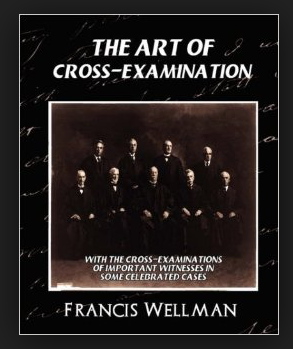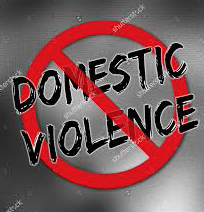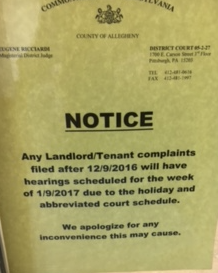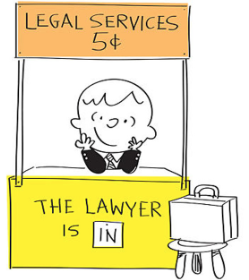Magistrate Filing Costs and Fines for 2017
Posted by Cliff Tuttle| December 30, 2016 | © 2026
No. 1,294
The following costs and fines have been established by the Pennsylvania Supreme Court for Magisterial District Judges beginning January 1, 2017.
- 29.402. 42 Pa.C.S. § 1725.1. Costs.
(a) Civil cases. — In calendar year 2017, the costs to be charged by magisterial district judges in every civil case, except as otherwise provided in this section, shall be as follows:
(1) Actions involving $500 or less $51.50
(2) Actions involving more than $500
but not more than $2,000 $69.00
(3) Actions involving more than $2,000
but not more than $4,000 $86.00
(4) Actions involving between $4,001
and $12,000 $129.00
(5) Landlord–tenant actions involving $2,000 or less $77.50
(6) Landlord–tenant actions involving more than $2,000
but not more than $4,000 $94.50
(7) Landlord–tenant actions involving more than $4,000
but not more than $12,000 $129.00
(8) Order of execution $39.00
(9) Objection to levy $17.50
(10) Reinstatement of complaint $9.00
(11) Entering Transcript on Appeal or Certiorari $4.50
Said costs shall not include, however, the cost of postage and registered mail which shall be borne by the plaintiff.
(a.1) Custody cases. — In calendar year 2017, the cost (in addition to the cost provided by general rule) to be charged by the court of common pleas shall be as follows:
(1) Custody cases, except as provided in section 1725(c)(2)(v) $8.00
(b) Criminal cases. — In calendar year 2017, the costs to be charged by the minor judiciary or by the court of common pleas where appropriate in every criminal case, except as otherwise provided in this section, shall be as follows:
(1) Summary conviction, except motor vehicle cases $49.00
(2) Summary conviction, motor vehicle cases, other
than paragraph (3) $39.00
(3) Summary conviction, motor vehicle cases,
hearing demanded $47.00
(4) Misdemeanor $56.00
(5) Felony $64.50
Such costs shall not include, however, the cost of postage and registered mail which shall be paid by the defendant upon conviction.
(c) Unclassified costs or charges. — In calendar year 2017, the costs to be charged by the minor judiciary in the following instances not readily classifiable shall be as follows:
(1) Entering transcript of judgment from another member
of the minor judiciary $9.00
(2) Marrying each couple, making record thereof, and
certificate to the parties $43.00
(3) Granting emergency relief pursuant to 23 Pa.C.S. Ch. 61
(relating to protection from abuse) $17.50
(4) Issuing a search warrant (except as provided in
subsection (d)) $17.50
(5) Any other issuance not otherwise provided in this
subsection $17.50
- 29.403 42 Pa.C.S. § 3571.
In calendar year 2017, Commonwealth portion of fines, etc.
* * *
(c) Costs in magisterial district judge proceedings.
(2) Amounts payable to the Commonwealth:
(i) Summary conviction, except motor vehicle cases $17.10
(ii) Summary conviction, motor vehicle cases other than
subparagraph (iii) $17.10
(iii) Summary conviction, motor vehicle cases,
hearing demanded $17.10
(iv) Misdemeanor $22.40
(v) Felony $34.40
(vi) Assumpsit or trespass involving:
(A) $500 or less $21.50
(B) More than $500 but not more than $2,000 $34.50
(C) More than $2,000 but not more than $4,000 $51.60
(D) Between $4,001 and $12,000 $86.00
(vii) Landlord–tenant proceeding involving:
(A) $2,000 or less $34.50
(B) More than $2,000 but not more than $4,000 $42.95
(C) More than $4,000 but not more than $12,000 $60.20
(viii) Objection to levy $8.75
(ix) Order of execution $26.00
(x) Issuing a search warrant (except as provided in
section 1725.1(d)(relating to costs)) $12.25
(xi) Order of possession $15.00
(xii) Custody cases (except as provided in
section 1725(c)(2)(v)) $6.40
Landlord-Tenant: Domestic Violence Exception to 10-day Appeal Limit in Eviction Cases.
Posted by Cliff Tuttle| December 30, 2016 | © 2026
No. 1,293
In this non-precedential decision, the Superior Court construes a little-known provision in the Landlord and Tenant Act regarding appeal of a landlord-tenant case involving recovery of possession of the leased premises when the tenant is a victim of domestic violence. The statute, found at 68 P.S.§250.513(b) states:
“Within ten days after the rendition of judgment by a lower court arising out of residential lease or within thirty days after a judgment by a lower court arising out of a nonresidential lease or a residential lease involving a victim of domestic violence, either party may appeal to the court of common pleas[.]”
The applicable Rule is Pa.R.Civ.P.D.J. 1002, which does not mention the statutory exception for victims of domestic violence.
On May 15, 2015 the Magisterial District Judge entered an order for rent and possession in a landlord-tenant case. On June 15, the tenant appealed to the Court of Common Pleas.
The Court held that the appeal was not timely because the appellant did not qualify under the Landlord and Tenant Act as a victim of domestic violence. The Court notes:
“The Landlord Tenant Act defines a victim of domestic violence as “a person who has obtained a protection from abuse order against another individual or can provide suitable evidence as the court shall direct.” 68 P.S. § 250.513.”
In the hearing below, no Protection from Abuse Order was produced and the trial court stated that it was not convinced by the Tenant’s testimony. The Superior Court accepted that finding. Thus, the Tenant was not qualified to appeal within 30 days.
A footnote: yes, there are 31 days in May. June 15 is in fact 31 days, not 30 days after May 15. The thirtieth day, June 14, is Flag Day, a court holiday. So, June 15 is the last day to file a 30-day appeal.
CLT
Tags: 68 P.S. § 250.513 > 68 PS § 250.513 > domestic violence > Landlord and Tenant Act > Pa.R.Civ.P.D.J. 1002 > Protection from Abuse
Shot Across the Border kills someone in Mexico — is there civil liability in US Courts?
Posted by Cliff Tuttle| December 29, 2016 | © 2026
No. 1,292
Is there civil liability for death caused by a shot fired across the Rio Grande? Some think that the US Supreme Court will probably take the case.
Christmas Card for Tenants
Posted by Cliff Tuttle| December 20, 2016 | © 2026
No. 1291
Trump’s secret was hiding all along in plain view.
Posted by Cliff Tuttle| November 10, 2016 | © 2026
No. 1,290
In the past two days, I have read a ton of articles and watched an army of talking heads expound upon various theories to explain the Trump triumph at the polls. Undoubtedly, many stars had to come into alignment to create this remarkable constellation. But one beacon outshines them all.
Trump had the extraordinary ability to make interesting speeches — so interesting that he filled large arenas wherever he went. This phenomenon became evident early in the primaries. And during the frantic final weeks, it served him well as he raced from one battleground rally to the next, filled to the overflow.
As Hillary was luring voters to her rallies with entertainers, Beyonce, JZ and the like, Trump didn’t need a concert to pack the house. He was the celebrity in chief. And he didn’t need a media consultant to teach him how to attract television coverage. The news channels couldn’t get enough, because their viewers couldn’t get enough. And all he did was stand up and talk.
Now, that doesn’t mean that everybody loved him. Those who swarmed to his campaign events obviously did, but according the polls, most TV viewers didn’t. Yet, they still watched his campaign speeches, perhaps because they wanted to be the first to know what blasphemy he might utter next. Yes, he was and still is the master of the art of being unpredictable.
Its a great gift, for certain — but not entirely rare. Many of the best trial lawyers have it, each in his/her own way. Lincoln was one. He could disarm an opponent by telling a well-timed funny story. I’ve seen the dark mood in a criminal trial evaporate when defense counsel tells a well-timed joke at the expense of his client. And I’ve also heard a courtroom become deadly quiet when trial counsel drops an unexpected idea at an unexpected moment.
Is the best yet to come? Stay tuned.
CLT
Confession of Judgment and Political Advertising
Posted by Cliff Tuttle| November 7, 2016 | © 2026
No. 1,289
The TV advertising on both sides of the Pennsylvania Senatorial race has been an abomination of untruth, half truth and true but irrelevant statements. So perhaps one more wrong allegation doesn’t matter very much. In fact, some of the claims are so outrageous, that even a child could see through them. Nevertheless, the allegations regarding use of confession of judgment clauses are not obvious to non-lawyers and therefore is worthy of discussion.
Katy McGinty’s campaign criticizes Senator Toomey for authorizing the practice of confession of judgment in commercial lending by a bank in which he owns a stake and had once served as chairman of the board. This ignores the fact that, in Pennsylvania, a commercial (business) mortgage and the accompanying commercial promissory note almost always contain such a clause. They are also commonplace in commercial leases for offices, store rooms and other business property.
A “confession” means that the borrower agrees in advance to entry of judgment without a trial. In Pennsylvania, as in many other states, this powerful legal tool cannot be used in a consumer transaction, one where the proceeds are used to fund the purchase of consumer goods or services, including a personal residence. Most of the time, a confession of judgment is not entered on the public record until after there is a default. But the agreement could provide for entry of judgment at any time the lender feels insecure about repayment of the debt. Sometimes the agreement provides for advanced notice and an opportunity to cure (usually pay)in order to avoid entry of judgment. Sometimes not.
While most commercial borrowers cannot persuade the lender to waive a confession of judgment clause entirely, they may be able to negotiate the terms — perhaps to require advanced notice. An experienced business transaction lawyer may be able to get other concessions, depending upon circumstances.
A lender may also secure a commercial loan with a mortgage on the residence of the borrower. However, in this case, there is a certain amount of protection under Pennsylvania law. The lender must go through the foreclose process, as it would under a residential mortgage.
Yes, a judgment does create lien the personal residence of the commercial borrower. And yes, the commercial borrower could lose that residence through a sheriff sale. But the opportunity to present a defense is available.
Confession of judgment is not a practice that is unique to the bank where Senator Toomey owned a small interest. Every bank that makes commercial loans in Pennsylvania could demand a confession of judgment in its loan documents. Far from it being a predatory practice, as alleged in the commercials, it is a standard practice and is authorized by federal and state bank regulators for commercial lending. As a matter of fact, the failure to utilize this legal weapon in certain types of commercial lending might be viewed by regulators as an unsound practice — exposing the bank to an unnecessary risk of loan loss.
Perhaps there should be a policy discussion regarding this lending practice. But the anti-Toomey advertising campaign is not the place to do it.
CLT
Tags: cognovit clause > confession of judgment
Vote Yes on the Judicial Retirement Constitutional Amendment
Posted by Cliff Tuttle| October 17, 2016 | © 2026
No. 1,288
Two newspapers on the other side of the State have editorialized against the ballot initiative to amend the Pennsylvania Constitution to raise the mandatory retirement age for judges from 70 to 75. The principal reason why they are against this measure is that the ballot doesn’t state that the current retirement age is 70. Then, a few fluffy reasons are added to oppose the merit of the proposition.
But the truth is, there are plenty of excellent reasons to increase the retirement age for judges. The most important is that the Supreme Court regularly appoints senior judges to serve past age 70. These judges serve on a per diem basis as needed. The truth is is that they are usually needed. And it is equally true that it takes longer these days to develop the expertise needed in specialized areas of the law.
Moreover, any lawyer who regularly appears in court will tell you that senior judges perform very well, primarily because they are the most experienced and frequently most knowledgeable members of the bench. Increasing the tenure of judges would simply acknowledge the success of the senior judge program.
But the broader truth is that people in their seventies are healthier and live longer today than prior generations. Mandatory retirement ages that were established in the past are harder to defend. We only deprive ourselves of the service of many of the most experienced individuals in the work force. This, of course, does not prevent voluntary retirement at any age. But the choice should be made by the individual, not by an across-the-board rule.
CLT
How to Effectively Cross Examine an Expert Without Discussing His/Her Opinion.
Posted by Cliff Tuttle| October 4, 2016 | © 2026
No. 1,287
 Here’s avery good post in the California Education of the Bar Blog that is worth a read by trial lawyers demonstrating the indirect questioning of an expert witness. You never challenge the conclusion, but bring up undeniable truths.
Here’s avery good post in the California Education of the Bar Blog that is worth a read by trial lawyers demonstrating the indirect questioning of an expert witness. You never challenge the conclusion, but bring up undeniable truths.
The Art of Cross Examination, by Francis L. Wellman, an old classic, told about a famous cross examination where the witness and the opposing counsel were good friends. Here is my recollection of the story without bothering to look it up.
The cross-examining lawyer looked out the window in order to not betray his intentions in advance.
Q: Dr. Jones, was Mr. Smith a patient of yours?
A: Yes.
Q: How is he?
A: He’s dead.
Q: Oh, I am so sorry. And Mr. Adams was he your patient too?
A: Yes.
Q: And how is he doing?
A: He’s fead too.
You get the picture.
CLT
Trend: Lower Cost Legal Services — How Will It Happen?
Posted by Cliff Tuttle| October 2, 2016 | © 2026
No. 1,286
There has been a lot of discussion of the future of the legal profession. A post in Lawyerist.com, a nuts and bolts blog for lawyers, summarizes conclusions in a book by a futurist named Suskind. He concluded that lawyers in private practice were being marginalized by, among other things, non-lawyers and technology. Suskind also predicted that small firms and solo lawyers would eventually cease to exist in the business environment of the future.
In another post, Lawyerist gave advice to solos and small firms on how to compete in this brave new world. Among its suggestions were to utilize technology and introduce the use of flat fees.
In my view, lawyering has unique characteristics that make the outcome differ from other enterprises. In most businesses, such as manufacturing, growth creates economies of scale. In a competitive marketplace, this leads to lower prices. However, that doesn’t seemed to be happening in lawyering. The larger a firm becomes, generally speaking, the larger its fees. This is because there is no assembly line in a law firm. No matter how large the firm becomes, each lawyer is still an individual craftsman at his own work bench. Yes, there is a support staff. But the outcome is not a cheaper product. The support staff enables the lead lawyer to produce more and to do it quicker. The client pays extra for product improvement, including speed. The bill goes up, not down.
They say that fees bear a relationship to the difficulty of the work and the required skill. While there is truth to that observation, it is also correct to say that the fee bears a direct relationship to the amount of money at stake. A client won’t knowingly spend $2,000.00 to recover $1,000.00. What you get, then, is a variant of Parkinson’s Law. The volume of work (and thus the fee) rises to meet the value of the money pot at the end of the rainbow.
Larger firms charge more, in part, because they can. Their clients eschew cheaper alternatives because they think they need a better (pronounced “more expensive”) lawyer. Sometimes they are right, but just as often they are wrong. A lawyer who is mismatched with a case or task is usually too expensive, regardless of the fee.
There are many lawyers who are a good value precisely because they are a good match. That’s the trick. Spend more legal resources than necessary and there is waste. Spend less and you risk losing a case that could have been won. Nevertheless, clients are getting better at finding that match.
Much of the credit for this trend goes to institutions like AVVO. This website presents the consumer of legal services with choices. Every American lawyer has an AVVO page. This gives them an opportunity to compete for the attention of the growing number of people (especially millennial) who are going on line to search for lawyers. This is the 21st Century lawyerly equivalent of speed dating.
Contrary to the popular wisdom, small firms and solo practitioners can thrive in this environment. They can beat the larger firms on cost by cutting overhead. They can deliver high quality service by specialization and by tailoring the amount of work to the requirements of the job. And they can gain access to a wider range of clients today through the internet.
One advantage that sole practitioners often have is the ability to offer fixed fees and fee caps. Under a fixed fee or fee cap arrangement, the lawyer assumes the risk that the amount of work will exceed the estimate, since there are no payroll and other direct costs that balloon the financial investment in the case.
Fixed or capped fees are briar patches and rabbit holes that Brer Fox and Brer Bear cannot enter. Sometimes it can pay to be quick and small.
CLT
Trend: Increased Free or Low Cost Legal Counsel for Tenants
Posted by Cliff Tuttle| October 1, 2016 | © 2026
No. 1,285
The New York Law Journal reports that New York City is likely to establish a program to provide free legal counsel to low income tenants.
This trend is also evident for some time in Allegheny County, where the Bar Association Pro Bono organization has sponsored its Landlord-Tenant Project for several years. In addition, the Neighborhood Legal Services Association has several lawyers who handle cases for indigent tenants who qualify.
The impact of this trend may not be evident to landlords until they get to court. NLSA attorneys are experts in landlord-tenant law and know how to try a case. Most of the time, they first appear at the arbitration level. They may be able to surprise unrepresented landlords or even less experienced attorneys. Volunteer attorneys may not be quite so experienced, but they can also be dangerous.
CLT







